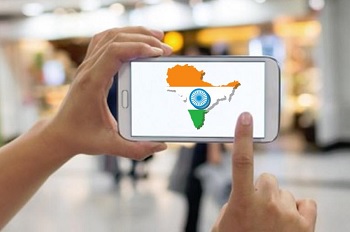Snapdeal is showing rapid growth in its online sales over smartphones and tablets.
The Indian shopping marketplace, Snapdeal, has seen quite the difference over the last year in the percentage of online sales that is being brought in through mobile commerce as opposed to using a personal computer.
This most rapidly growing shopping site in India had seen only 5 percent of its $400 million in sales from mobile shoppers in 2013.
This year, the annual gross merchandise volume broke the $1 billion mark, according to Kunal Bahl, the company’s CEO, and mobile commerce is now accounting for 60 percent of its sales. Clearly, this is a tremendous rise in the share of the sales that are coming from smartphones and tablets in India. That said, this is a trend that is being sought after by online marketplaces around the world, including the giants such as Amazon.
Amazon recently revealed that it would be investing an additional $2 billion into its mobile commerce marketplace in India.
 Equally, Flipkart, which is a privately held company, has announced a similar investment of $1 billion. Snapdeal has also been speaking informally with American bankers about the opportunity for an IPO in the future.
Equally, Flipkart, which is a privately held company, has announced a similar investment of $1 billion. Snapdeal has also been speaking informally with American bankers about the opportunity for an IPO in the future.
This is a clear indication that when it comes to the Indian online shopping marketplace, m-commerce is starting to play a very important role. Moreover, this type of insight suggests that retailers that want to remain competitive will need to make sure that they are providing a strong mobile optimized experience so that consumers can shop over their favorite devices.
There has been some hesitation among certain companies, simply because there is risk involved. This remains a relatively immature market, as much as it has been taking off rather quickly. That said, because the trend is clearly showing that people in India are more than willing to make purchases on their smartphones and tablets, it is becoming increasingly evident that this is a channel that is likely to stick around and only become increasingly important, as opposed to being a passing fad.
Mobile commerce is soon to be a highly competitive and meaningful market and companies that fail to keep up may miss out on a considerable opportunity.

